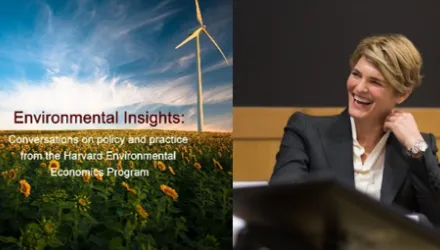A 2013 Montpellier Panel Briefing
Background to the Briefing Paper
Why Innovation?
Innovation is at the heart of sustainable intensification, helping African smallholder farmers produce more with less impact on the environment while also improving agriculture's sustainability. Food production remains well below its potential in Africa.
Tackling hunger, malnutrition and poverty while at the same time protecting and improving the environmental base will require human ingenuity, creativity and innovation, especially in the face of severe resource constraints and global warming.
How will it work?
Today the challenges we face and solutions we need are more complex, by an order of magnitude. We will need to go beyond sector silos in academia, business and government, and think more strategically and holistically about how we can cope with inter-connected issues that require integrated approaches and solutions. We need to re-think our research and innovation systems to facilitate multidisciplinary, collaborative research at a range of scales:
- Focussing on multiple benefits — not only higher yields and production and more nutritious foods, but also more selective use of inputs, reduced environmental impact, greater resilience, minimised emissions of greenhouse gases and improvements in natural capital.
- Engaging with multiple partners — to ensure all benefits are considered and to utilise different approaches. Partners will include both the public and private sectors, Civil Society Organisations (CSOs) and NGOs. Gender equity and balance is also crucial to ensure all benefits are considered and to utilise different approaches. Partners will include both the public and private sectors, Civil Society Organisations (CSOs) and NGOs. Gender equity and balance is also crucial.
- Utilising multiple approaches — often concurrently in an integrated fashion combining the application of agricultural ecological processes (ecological intensification), the utilisation of modern plant and livestock breeding (genetic intensification) and socio-economic intensification, that provides an enabling environment for technological and institutional innovation and technology adoption.
- Working on multiple scales — from the individual field, to the farm, to the community, to the watershed and to whole landscapes, to ensure multiple benefits are fully realized.
Next steps
Rather than a complete set of answers, the report offers a 10-point agenda for further research, dialogue and policy making in the coming years.
Dowmload the entire Briefing Paper here: https://workspace.imperial.ac.uk/africanagriculturaldevelopment/Public/MP_0047_Report_V5_Low-res_singlepages.pdf
Juma, Calestous, Ramadjita Tabo, Katy Wilson and Gordon Conway. “Innovation for Sustainable Intensification in Africa.” Imperial College, September 2013
The full text of this publication is available via Imperial College.





